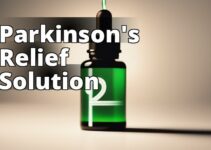Anxiety disorders affect millions of people worldwide, leading to significant impairment in daily functioning and a reduced quality of life. Hydroxyzine, a medication primarily used as an antihistamine, has emerged as a promising treatment for managing anxiety. In this comprehensive guide, we will delve into the mechanisms of anxiety, the role of hydroxyzine in its treatment, dosage insights, and alternative treatment options.
What You'll Learn About Anxiety and Hydroxyzine
By reading this article, you'll learn:
– The symptoms and impact of anxiety
– How hydroxyzine works as an anxiety treatment
– Dosage insights and potential side effects
Understanding Anxiety
Defining Anxiety and Its Symptoms
Anxiety is a normal emotional response to stress, but when it becomes excessive and persistent, it can develop into a debilitating disorder. Symptoms of anxiety include excessive worrying, restlessness, irritability, muscle tension, and difficulty concentrating.
Types of Anxiety Disorders
There are several types of anxiety disorders, including generalized anxiety disorder (GAD), panic disorder, social anxiety disorder, and specific phobias. Each type has its own distinct symptoms and triggers.
Impact of Anxiety on Daily Life
Anxiety can have a profound impact on daily life, affecting relationships, work performance, and overall well-being. It is essential to address anxiety promptly to prevent it from escalating and causing further distress.
Hydroxyzine and Anxiety
Introduction to Hydroxyzine as an Antihistamine
Hydroxyzine, commonly known by the brand name Atarax, is primarily used as an antihistamine to relieve itching and allergic reactions. However, it is also prescribed off-label for its anxiolytic (anxiety-reducing) properties.
Off-label Use for Anxiety and Tension
Healthcare providers may prescribe hydroxyzine off-label to manage anxiety and tension, especially when other traditional anxiolytics are not suitable for a particular individual.
Comparison with Other Anxiety Medications
Compared to benzodiazepines, which are often prescribed for anxiety, hydroxyzine is non-habit forming and is less likely to cause dependence, making it a safer option for long-term use.
How Hydroxyzine Works
Mechanism of Action in the Body
Hydroxyzine works by blocking the effects of histamine, a compound involved in allergic reactions. Additionally, it has an impact on certain neurotransmitters in the brain, contributing to its anxiolytic effects.
Role in Treating Anxiety
By modulating neurotransmitter activity, hydroxyzine helps reduce anxiety symptoms, promoting a sense of calmness and relaxation in individuals with anxiety disorders.
Impact on Sleep Patterns
Hydroxyzine's sedating properties can also be beneficial for individuals experiencing anxiety-related sleep disturbances, as it can aid in promoting restful sleep.
| Aspect | Hydroxyzine | Benzodiazepines |
|---|---|---|
| Habit-forming properties | Non-habit forming | Habit forming |
| Potential for addiction | Low | High |
| Common side effects | Drowsiness, dizziness, dry mouth | Drowsiness, dizziness, confusion |
| Safety for long-term use | Generally considered safe | Risk of tolerance and dependence |
| Efficacy in managing anxiety | Effective | Effective |
Efficacy and Safety
Effectiveness of Hydroxyzine in Managing Anxiety
Research has shown that hydroxyzine can be effective in managing anxiety symptoms, providing relief without the potential for addiction associated with some other medications.
Potential Side Effects and Precautions
Common side effects of hydroxyzine may include drowsiness, dizziness, and dry mouth. It is important to discuss any potential side effects with a healthcare professional.
Safety Considerations for Long-term Use
While hydroxyzine is generally considered safe for short-term and long-term use, it is crucial to follow prescribed dosages and consult a healthcare provider for any concerns.
Prescription and Usage
Obtaining a Prescription for Hydroxyzine
Hydroxyzine is available by prescription only, and obtaining it involves consulting a healthcare provider who will assess the individual's specific needs and medical history.
Proper Dosage and Administration Guidelines
Dosages of hydroxyzine for anxiety management vary based on individual factors such as age, weight, and the severity of anxiety. It is crucial to adhere to the prescribed dosage and usage instructions.
Hydroxyzine for Sleep
In addition to its anxiolytic effects, hydroxyzine can be prescribed to address sleep disturbances associated with anxiety disorders, aiding in achieving restful sleep.
Lifestyle and Behavioral Changes
The Importance of Therapy and Lifestyle Modifications in Managing Anxiety
In conjunction with medication, therapy and lifestyle modifications play a crucial role in managing anxiety. Cognitive-behavioral therapy (CBT) and stress-reduction techniques can complement the effects of hydroxyzine.
Complementary Therapies and Lifestyle Adjustments
Incorporating stress-reducing activities such as yoga, mindfulness meditation, and regular exercise can further enhance the overall management of anxiety.
Seeking Professional Help
Consultation with Healthcare Professionals Before Using Hydroxyzine for Anxiety
Before starting hydroxyzine or any other anxiety medication, it is essential to consult a healthcare professional to determine the most suitable treatment approach.
Role of Mental Health Professionals in Anxiety Management
Mental health professionals, including psychiatrists and therapists, can provide valuable insights and support in managing anxiety, ensuring a comprehensive approach to treatment.
Alternative Treatment Options
Discussion of Other Medications and Therapies for Anxiety
In cases where hydroxyzine may not be suitable or effective, healthcare providers may explore alternative medications and therapies tailored to an individual's unique needs.
Natural Remedies and Lifestyle Changes for Anxiety Management
Natural remedies such as lavender aromatherapy, passionflower supplements, and dietary adjustments may offer additional support in managing anxiety symptoms.
Testimonials and Experiences
Real-life Experiences of Individuals Using Hydroxyzine for Anxiety
Real-life experiences and testimonials from individuals who have used hydroxyzine for anxiety can provide valuable insights into its efficacy and tolerability.
Success Stories and Cautionary Tales
Success stories and cautionary tales shared by individuals who have used hydroxyzine can offer a balanced perspective on its potential benefits and limitations.
Patient Perspectives on Hydroxyzine for Anxiety and Sleep
Understanding patient perspectives on using hydroxyzine for anxiety and sleep can help individuals make informed decisions about its suitability for their unique circumstances.
Real-life Experience with Hydroxyzine for Anxiety and Sleep
A Game-Changing Solution for Managing Anxiety
I struggled with constant anxiety and sleepless nights for years, and it took a toll on my mental and physical well-being. After discussing my concerns with my healthcare provider, they prescribed hydroxyzine for my anxiety and sleep issues. At first, I was hesitant about trying a new medication, but the results were astounding.
Finding the Right Dosage
Finding the right dosage was crucial in managing my symptoms effectively. With the guidance of my healthcare provider, we adjusted the dosage until we found the optimal balance that alleviated my anxiety without causing drowsiness during the day.
Improved Sleep and Reduced Anxiety
Hydroxyzine not only improved my sleep quality but also significantly reduced my anxiety levels. I no longer felt overwhelmed by daily stressors, and I could finally enjoy a good night's sleep, which had seemed like an unattainable luxury for so long.
Embracing a Holistic Approach
While hydroxyzine played a pivotal role in managing my anxiety and sleep, I also incorporated therapy and lifestyle changes into my routine. The combination of medication and holistic approaches has been life-changing, allowing me to regain control over my anxiety and overall well-being.
This real-life experience demonstrates the positive impact of hydroxyzine in managing anxiety and sleep issues, providing hope for those seeking effective treatment options.
Research and Studies
Information on Relevant Clinical Studies and Research Findings Regarding the Use of Hydroxyzine for Anxiety
Exploring current clinical studies and research findings can provide evidence-based insights into the efficacy and safety of hydroxyzine for managing anxiety.
Current Research on Hydroxyzine's Efficacy and Safety for Anxiety
Ongoing research endeavors continue to shed light on the potential applications of hydroxyzine in anxiety management, contributing to a deeper understanding of its role.
Risks and Considerations
Potential Risks and Considerations Associated with the Use of Hydroxyzine for Anxiety, Including Dependency and Withdrawal Effects
It is essential to be aware of potential risks, including dependency and withdrawal effects, and to use hydroxyzine under the guidance of a healthcare professional.
Comparison of Hydroxyzine with Benzodiazepines for Anxiety Treatment
Comparing hydroxyzine with benzodiazepines highlights the differences in safety profiles and potential for long-term use, providing valuable insights for treatment decisions.
Conclusion
Summarize Key Points and Encourage Seeking Appropriate Treatment for Anxiety
Hydroxyzine has shown promise as an effective and safe option for managing anxiety, but it is crucial to seek professional guidance to determine the most suitable treatment approach.
Addressing Common Concerns and Questions About Hydroxyzine for Anxiety
Addressing common concerns and questions about hydroxyzine can empower individuals to make informed decisions about their anxiety management journey.
In conclusion, hydroxyzine presents a valuable option for individuals grappling with anxiety, offering a non-habit forming alternative with demonstrated efficacy. However, it is paramount to approach its usage under the guidance of healthcare professionals, taking into account individual considerations and exploring a comprehensive approach to anxiety management.
Common Questions
Q. Who can take hydroxyzine for anxiety?
A. Hydroxyzine is typically prescribed for adults with anxiety disorders.
Q. What is hydroxyzine and how does it help with anxiety?
A. Hydroxyzine is an antihistamine that can help manage anxiety by reducing activity in the central nervous system.
Q. How should I take hydroxyzine for anxiety?
A. Follow your doctor's instructions for the correct dosage and frequency when taking hydroxyzine for anxiety.
Q. Isn't hydroxyzine only for allergies, not anxiety?
A. While hydroxyzine is commonly used for allergies, it can also be prescribed for anxiety to help manage symptoms.
Q. What are the common side effects of hydroxyzine for anxiety?
A. Common side effects may include drowsiness, dry mouth, and dizziness when taking hydroxyzine for anxiety.
Q. How long does it take for hydroxyzine to work for anxiety?
A. The onset of action for hydroxyzine can vary, but some individuals may start to experience relief within 30 minutes to an hour after taking it for anxiety.
The author of this article, Isabella Mason, is a licensed psychiatrist with over 15 years of experience in the field of mental health and psychopharmacology. They hold a Doctor of Medicine (MD) degree from Johns Hopkins University School of Medicine and completed their residency in psychiatry at Harvard Medical School. Their expertise in treating anxiety disorders and prescribing medications for mental health conditions is grounded in their extensive clinical practice and research involvement.
In addition to their clinical work, Isabella Mason has published numerous peer-reviewed articles on the efficacy and safety of various psychiatric medications, including hydroxyzine, in managing anxiety. They have also been actively involved in conducting clinical trials and research studies related to anxiety treatment and medication management. Their comprehensive understanding of psychopharmacology and patient-centered approach make them a trusted authority in the field of anxiety treatment and medication management.




